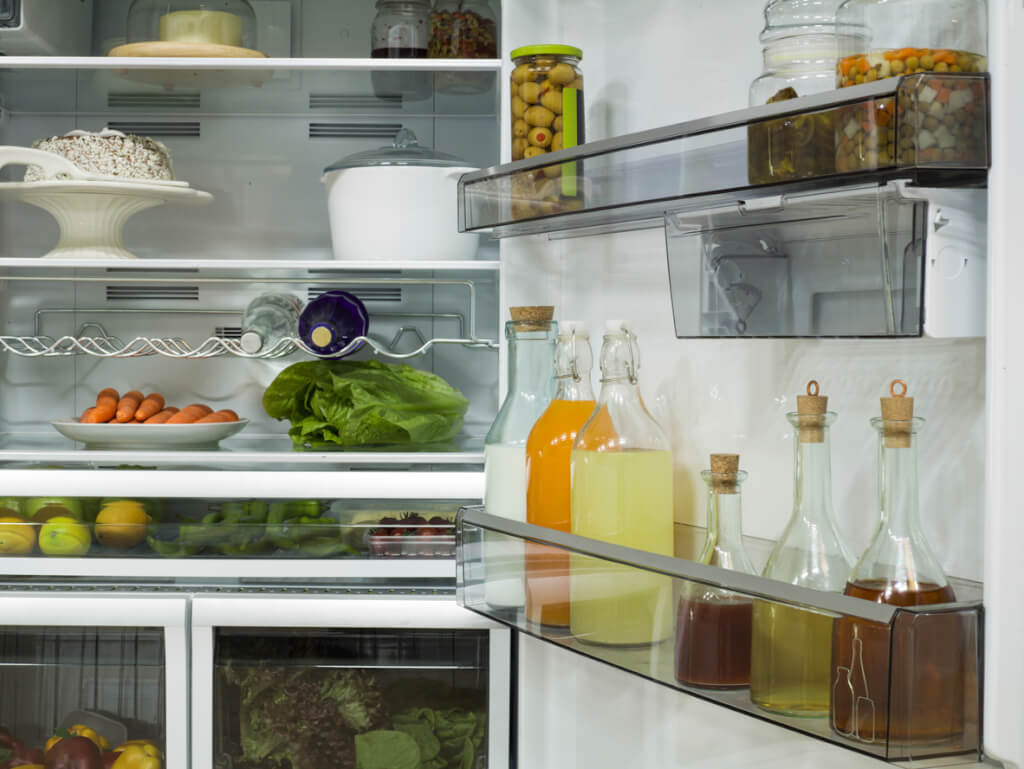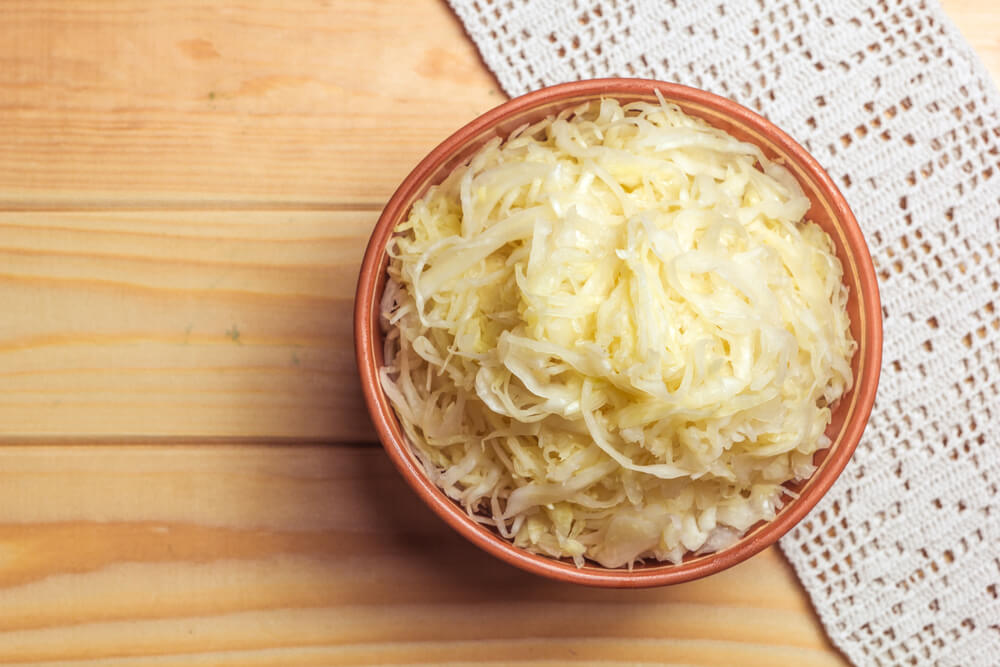Store foods in the refrigerator correctly: important tips
'26.09.2022'
In 1899, a certain Albert Marshall patented his invention - a refrigerator. This invention immediately and, apparently, for a long time changed the concept of food storage. We are so accustomed to this device that we perceive it as an integral attribute and a common source of cold, in which you can store food as you like. But this is a mistake. Indeed, due to improper storage, products deteriorate faster, acquire an unpleasant odor and become hazardous to health, and improper and excessive loading can disrupt air circulation. In this article, we will provide important tips for using the refrigerator to keep your food fresh for as long as possible.

But before proceeding directly to the rules for storing products, let us touch on not less important things, without which proper and economical storage of products is impossible.
Revision of spoiled products
First you need to conduct an audit of all that is in the refrigerator. It is necessary to remove everything that has deteriorated, become covered with mold, as well as products that have expired. What does this give? Once you remove all unnecessary, in the future it is easier to control the new food and use it in time. In addition, you also save on electricity, because the more the refrigerator is clogged, the higher the power consumption.
Cleanliness is the key to health!
We hope everyone knows that the refrigerator needs to be kept clean. But we often put off washing it “until tomorrow”. And in vain. After all, the purity of the refrigerator itself contributes to a longer preservation of the freshness of products. And again about saving - a refrigerator freed from ice on time consumes less electricity. By the way, while washing the refrigerator, it is easier to conduct regular product revisions.
Cleaned up all unnecessary and washed the fridge? Then proceed directly to the rules of storage products.
1. All the shelves!
All levels of the refrigerator have their own temperature regime, so one of the most important storage rules is the correct placement of food at these levels. As you know, colder air is at the bottom, and warmer air is at the top. Usually all dairy products are stored at the very top of the chamber. On the lower tiers, raw meat and fish are stored. Drawers are provided for vegetables and fruits.
2. Refrigerator door
We must not forget that this is the warmest place in the refrigerator. That is, despite the fact that it is convenient to store milk, cheeses and other perishable products on it, this cannot be done!
3. Ready meals
It is ALWAYS better to keep ready meals in specially made containers for food storage. At the same time, the lid should fit snugly to the container itself. If you suddenly do not have a food container, ready-made meals should be packed as tightly as possible into food film or foil. It is important that the product is packed as tightly as possible, minimally contacting with air. This will greatly prolong the life of the product and prevent such an unpleasant thing as mixing smells.
4. Storage separately
There is one important axiom: food and products of different types must be stored separately from each other. For example, it is categorically important to keep raw meat and fish separately from finished products or those that will not be cooked before eating (vegetables, fruits). This is because raw meat and fish can be a source of pathogens. In addition, vegetables and fruits are also better kept in different containers, because they can speed up the process of rotting each other. In addition to containers, sausage and cheese products are best packed in special paper bags, which allow prodrugs to "breathe" and absorb excess evaporated moisture.
Separately should be stored:
raw meat and fish with vegetables, fruits;
ready and raw dishes (this is very important!);
smoked meats and cheeses;
vegetables or fruits and sausages;
vegetables and fruits.
5. Purity
Above, we wrote about the importance of a clean refrigerator. This is so important that we put it out again as a separate item. Always keep the refrigerator clean! For a chamber with vegetables or fruits, it is best to purchase a special antibacterial mat. It creates an air gap, due to which additional ventilation is present, which contributes to longer storage. At least once every 2 months, it is necessary to remove all products from the refrigerator in general, conduct their revision, if necessary, defrost the chambers from ice and wash each shelf and container with soapy water or a special detergent. After that wipe everything dry.
6. Preservation
It is not necessary to store preservation in the refrigerator, which has a long shelf life. As a rule, such products do not need to adhere to temperature regimes, which does not mean that it can be stored in the open sun. But if the preservation is stored in the refrigerator, it will definitely disrupt the air circulation, which may damage other products. As we wrote above, the more the refrigerator is loaded, the higher the power consumption. Opened cans can be stored in the refrigerator compartment. But do not forget that they must be tightly closed.
7. Zero camera
In the modern refrigerator there is a so-called freshness zone, which is also called the “zero camera”. Why zero? Because the temperature in it is close to 0 ° C. This temperature is optimal for storing perishable products that you plan to eat in the near future: raw meat, fish, poultry, seafood, minced meat, cheese, vegetables, greens. But do not forget about the separate storage of food.
And finally, some more secrets
Some foods do not need cold, although perhaps we thought otherwise. For example, if you keep bananas and avocados in the fridge, they lose moisture and darken. Melons, whole pineapples, garlic heads, onions are best kept in a dark and dry place, in a package that is well ventilated.
In addition, peaches, apples, pears, tomatoes, bananas, pineapples and melons have the “habit” of ripening, while releasing ethylene, which, in turn, spoils other foods around.
Eggs tend to absorb the smell of other products through the shell. The eggs themselves emit carbon dioxide. That is why they need to be stored in closed containers or compartments. Before placing in a container, eggs should be well washed under running water and thoroughly wipe.
If, after reading the article, you still didn’t rush to the kitchen to inspect, sort products and wash the refrigerator, then you should do it soon!







